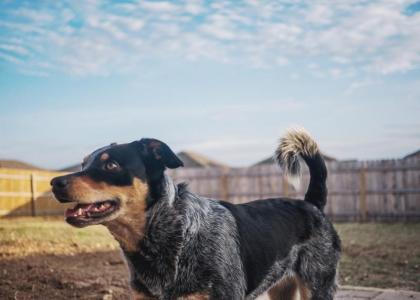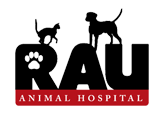
What To Know When Your Dog Needs Surgery
At Rau Animal Hospital, we understand that it can be frightening to receive the news that a dog surgery is being recommended. If one of our veterinarians is recommending a surgical procedure, rest assured that it is with the best interest of your dog. It is important to us that you understand the reasons as to why a surgical procedure is being recommended and are able to comfortably make the right decisions regarding your dog's health.
Surgery always carries with it numerous concerns ranging from potential complications to prognosis for recovery. However, because veterinary medicine has progressed to encompass all modern considerations, the risks are very low to your dog having any major complications from most surgeries.
Making The Decision To Proceed With Canine Surgery
The decision to do surgery involves a discussion with the owner about possible complications and all factors to be considered when deciding what is best for your dog. Factors to think about when considering dog surgery include:
- Age and general health of the dog
- Potential complications from the surgery
- Potential outcome if surgery is not done
- Recovery Time and post op care required by the owner
- Physical Therapy/Rehabilitation
Although the decision to have your dog undergo surgery is ultimately up to you, our veterinary team will present you with all the facts and possible outcomes to help you make an informed, ethical and compassionate decision that is in the best interest of both you and your loyal canine friend.
Canine Pre-Surgical Instructions
Dog pre-surgical instructions vary depending on the type of procedure being performed, and whether or not the dog surgery is emergency or planned. However, we will provide you with a set of dog pre-surgical instructions that can be used as a general guideline for preoperative preparations:
- Follow your vet's recommendations for feeding and drinking the day before and/or morning of the surgery
- Drop off your pet between 8am and 8:30am
- Listen carefully to post surgical instruction from your veterinary care team and call hospital if you have any questions regarding the post op care for your dog
Canine Anesthesia
At Rau Animal Hospital, we adhere to very stringent guidelines for administering anesthesia before, during and if necessary, after surgery. These guidelines come from the American Animal Hospital Association.
Dog anesthesia is extremely safe when the patients are stabilized before the procedure and all effort is made to have a good understanding of the dog's medical condition before surgery. There is always some risk to anesthesia, however, the risk is extremely low when being performed by a highly qualified veterinarian and surgical team.
Post Surgical Care For Canines
Just like dog pre-surgery instructions, dog surgery recovery protocols and care vary depending on the type of procedure performed, and whether or not the surgery was an emergency. However, we will provide you with a set of dog surgery recovery instructions that can be used as a general guideline for postoperative care:
- At home, allow your dog to recover in a warm, quiet space of its choosing (if possible) to increase comfort and reduce stress
- Limit outdoor exposure for at least 24 hours to supervised and if necessary, assisted bathroom breaks
- Suture care (stitches): Most surgeries will require some sutures. Your veterinary staff will review the after-care which will include keeping the dogs from licking the incision.
- Most dogs will be sent home with an Elizabethan Collar to ensure they do not lick or bite out the sutures
- Monitor the incision for possible signs of infection which will include redness or swelling
- Continue to follow your dog's recovery program until told to alter or discontinue it by your veterinarian
Scheduling Surgery For Your Canine
If you need to discuss surgical options, or schedule surgery for your dog, please contact us today. Our veterinary staff are highly experienced and caring dog people who are happy to help ease the stress and fear associated with dog surgery for you and your canine friend alike.
